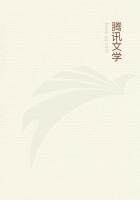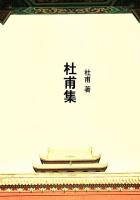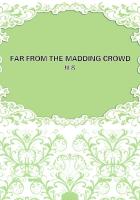ignorance; and it was the maxim that over-ruled the foregoing times, that IGNORANCE WAS THE MOTHER OF DEVOTION. Her wars were a long time more in the auxiliary part, and assistance of foreign princes and states, than by invasion of any; till common policy advised it, for a safer way, to strike first abroad, than at home to expect the war, in all which she was ever felicitous and victorious.
The change and alteration of religion upon the instant of her accession to the crown (the smoke and fire of her sister's martyrdoms scarcely quenched) was none of her least remarkable actions; but the support and establishment thereof, with the means of her own subsistence amidst so powerful enemies abroad, and those many domestic practices, were, methinks, works of inspiration, and of no human providence, which, on her sister's departure, she most religiously acknowledged--ascribing the glory of her deliverance to God above; for she being then at Hatfield, and under a guard, and the Parliament sitting at the self-same time, at the news of the Queen's death, and her own proclamation by the general consent of the House and the public sufferance of the people, falling on her knees, after a good time of respiration, she uttered this verse of the Psalm:
"A DOMINO FACTUM EST ISTUD, ET EST MIRABILE IN OCULIS NOSTRIS." {21}
And this we find to this day on the stamp of her gold, with this on her silver:
" POSUI DEUM ADJUTOREM MEUM." {22}
Her ministers and instruments of State, such as were PARTICIPESCURARUM, or bore a great part of the burthen, were MANY, and those MEMORABLE; but they were only FAVOURITES, and not MINIONS; such as acted more by HER princely rules and judgments, than by their OWNwills and appetites; for we saw no Gaveston, Vere, or Spencer, to have swayed alone, during forty-four years, which was a well-settled and advised maxim; for it valued her the more, it awed the most secure, it took best with the people, and it staved off all emulations, which are apt to rise and vent in obloquious acrimony even against the prince, where there is ONE ONLY admitted into high administrations.
A MAJOR PALATII
The principal note of her reign will be, that she ruled much by faction and parties, which she herself both made, upheld, and weakened, as her own great judgment advised; for I do dissent from the common and received opinion, that my Lord of Leicester was ABSOLUTE and ALONE in her GRACE; and, though I come somewhat short of the knowledge of these times, yet, that I may not err or shoot at random, I know it from assured intelligence that it was not so; for proof whereof, amongst many (that could present), I will both relate a story, and therein a known truth, and it was thus: Bowyer, the Gentleman of the Black Rod, being charged by her express command to look precisely to all admissions in the Privy Chamber, one day stayed a very gay captain (and a follower of my Lord of Leicester)from entrance, for that he was neither well known, nor a sworn servant of the Queen; at which repulse, the gentleman (bearing high on my lord's favour) told him that he might, perchance, procure him a discharge. Leicester coming to the contestation, said publicly, which was none of his wonted speeches, that he was a knave, and should not long continue in his office; and so turning about to go to the Queen, Bowyer, who was a bold gentleman and well-beloved, stepped before him, and fell at Her Majesty's feet, relates the story, and humbly craves Her Grace's pleasure, and in such a manner as if he had demanded whether my Lord of Leicester was King, or Her Majesty Queen: whereunto she replied (with her wonted oath, GOD'S-DEATH) "My lord, I have wished you well, but my favour is not so locked up for you that others shall not participate thereof; for Ihave many servants unto whom I have, and will, at my pleasure, bequeath my favour, and likewise resume the same; and if you think to rule here, I will take a course to see you forthcoming; {23} Iwill have here but one MISTRESS, and no MASTER; and look that no ill happen to him, lest it be severely required at your hands:" which so quailed my Lord of Leicester, that his faint humility was, long after, one of his best virtues.
Moreover, the Earl of Sussex, then Lord Chamberlain, was his professed antagonist to his dying day; and for my Lord Hunsdown, and Sir Thomas Sackville, after Lord Treasurer, who were all contemporaries, he was wont to say of them, that they were of the tribe of Dan, and were NOLI ME TANGERE, implying that they were not to be contested with, for they were, indeed, of the Queen's nigh kindred.
From whence, and in many more instances, I conclude that she was absolute and sovereign mistress of her graces, and that all those to whom she distributed her favours were never more than tenants-at-will, and stood on no better terms than her princely pleasure, and their good behaviour.
And this also I present as a known observation, that she was, though very capable of counsel, absolute enough in her own resolution;which was ever apparent even to her last, and in that of her still aversion to grant Tyrone {24} the least drop of her mercy, though earnestly and frequently advised thereunto, yea, wrought only by her whole Council of State, with very many reasons; and, as the state of her kingdom then stood, I may speak it with assurance, necessitated arguments.
If we look into her inclination, as it was disposed to magnificence or frugality, we shall find in them many notable considerations; for all her dispensations were so poised as though Discretion and Justice had both decreed to stand at the beam, and see them weighed out in due proportion, the maturity of her paces and judgments meeting in a concurrence; and that in such an age that seldom lapseth to excess.
To consider them apart, we have not many precedents of her LIBERALITY, nor any large donatives to PARTICULAR men, my Lord of Essex's book of PARKS excepted, which was a princely gift; and some more of a lesser size to my Lord of Leicester, Hatton, and others.















